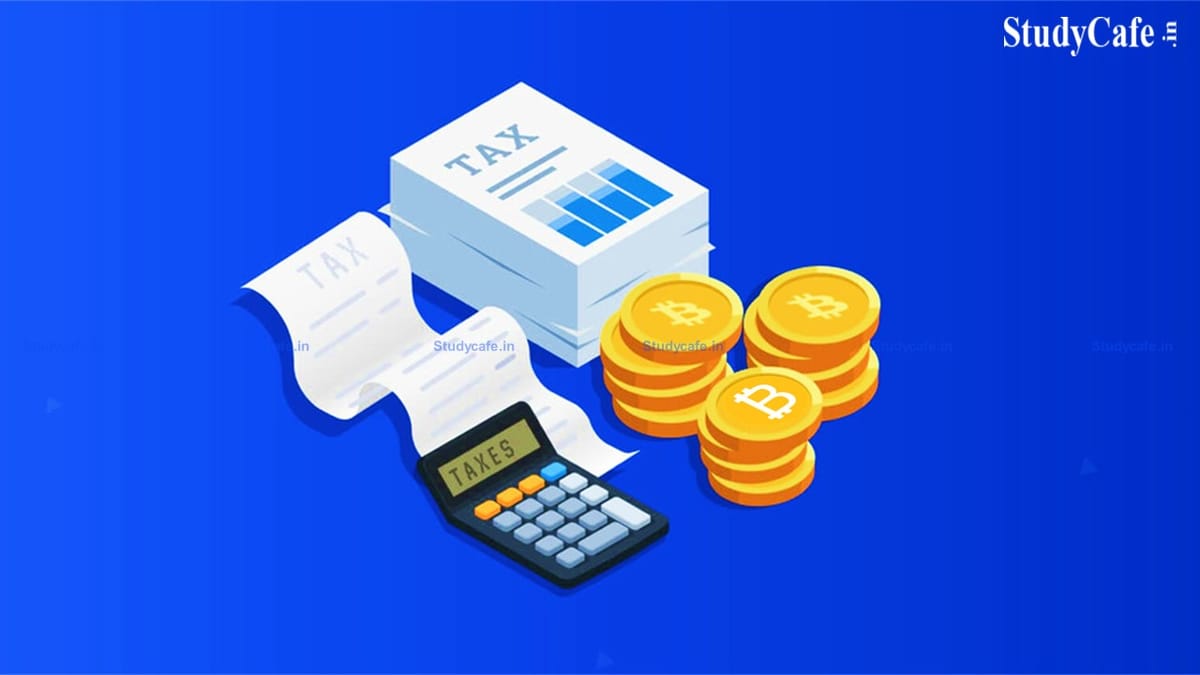Deepshikha | Dec 25, 2021 |

Taxation of Bitcoins under Income Tax Act
Because bitcoins are a relatively new concept in India, it appears that the government has yet to legislate on their taxability. At the same time, the imposition of a tax on bitcoins cannot be ruled out because Indian income tax regulations have traditionally tried to tax income received regardless of its form.
As a result, the idea of a bitcoin tax might be considered in the following scenarios:
Mining produces bitcoins, which are self-generated capital assets. In the ordinary course, subsequent sales of such bitcoins would result in financial gains.
It should be noted, however, that because bitcoin is a self-generated asset, the cost of acquisition cannot be estimated. Furthermore, it is not covered by Section 55 of the Income Tax Act of 1961, which determines the cost of acquisition of some self-generated assets.
As a result of the Supreme Court’s judgement in the case of B.C.Srinivasa Shetty, the capital gains computation process collapses. As a result, there would be no capital gains tax on bitcoin mining.
This posture will be maintained until the government considers amending Section 55 of the Act.
Given that the Indian tax rules are quiet on the taxability of bitcoins at present time, we believed it would be appropriate to comment on a possible contrary perspective by the income tax authorities. It’s possible that the department won’t even view bitcoins as capital assets.
As a result, the capital gains provisions would not apply at all. As a result, the value of bitcoins acquired through mining may be taxed under the heading “Income from other sources” by the income tax authorities.
If bitcoins, which are capital assets, are held as an investment and then transferred in exchange for real cash, the increase in value will result in either a long or short term capital gain, depending on how long the bitcoin has been held.
Long-term profits would also be taxed at a 20 per cent flat rate, but short-term gains would be taxed at the individual slab rate. After taking into account the benefit of indexation, the cost of acquisition for long-term capital gains will be estimated.
Reiterating the income tax authorities’ likely opposing viewpoint described in Point 1 above, the IT authorities may not regard Bitcoins to be a capital asset, and so capital gains regulations would not apply.
As a result, income tax authorities may elect to tax bitcoin gains under the heading “Income from other sources.”
Furthermore, if the income is taxed as “Income from other sources“, the individual will be required to pay taxes at the rate relevant to his tax bracket.
The gains derived from bitcoin trading activity would be liable to taxation at the individual slab rates because they are derived from a business.
Bitcoins received in this manner will be regarded in the same way as money. In the hands of the recipient, it would be considered income. Furthermore, because the recipient’s income was earned through a company or profession, he would ordinarily be taxed under the heading earnings or gains from a business or profession.
There is still a lack of clarity on the bitcoin disclosure required on income tax return forms. “112 Distributed ledger system or blockchain technology permits the organisation of any chain of data or transactions without the need for middlemen,” our Finance Minister, Mr Arun Jaitley, highlighted in the 2018 budget speech. The government does not consider cryptocurrencies to be legal cash or coins and will take all necessary steps to prevent them from being used to finance illegal activities or as part of the payment system. The government will proactively investigate the application of blockchain technology to usher in the digital economy.” Furthermore, the Central Bank has opted to reaffirm its earlier warning to “users, holders, and traders of Virtual Currencies (“VCs”), including bitcoins, about the potential economic, financial, operational, legal, customer protection, and security risks involved with dealing with such VCs.”
As a result, given that bitcoin transactions are rapidly increasing in India while laws regulating them are mostly lacking, we are confident that the government would issue a notification soon to clear up the ambiguity around bitcoin’s legality, taxability, and transparency requirements.
In case of any Doubt regarding Membership you can mail us at contact@studycafe.in
Join Studycafe's WhatsApp Group or Telegram Channel for Latest Updates on Government Job, Sarkari Naukri, Private Jobs, Income Tax, GST, Companies Act, Judgements and CA, CS, ICWA, and MUCH MORE!"